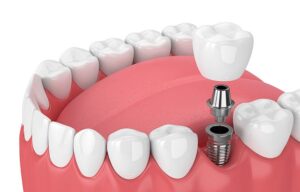In the world of dental care, two common solutions for missing teeth are dentures and dental implants. Both have their benefits, and understanding the difference is key to making an informed choice. Dentures are removable appliances. They replace missing teeth and surrounding tissue. Dental implants, on the other hand, are a more permanent solution. They involve placing a metal post in the jawbone, acting as a root for a replacement tooth. One example of this is the Fresno tooth implant, a reliable option for long-term dental health. When comparing these options, consider factors like cost, maintenance, and longevity. Dentures are often more affordable initially but may need replacement over time. Implants, while more expensive upfront, can offer lasting results. These insights will help you decide which option might best meet your needs. Understanding these differences will guide you toward a healthier, more confident smile.
What Are Dentures?
Dentures are prosthetic devices designed to replace missing teeth. They are custom-made to fit the unique shape of your mouth. Dentures come in two types: full and partial. Full dentures replace all teeth on either the upper or lower jaw. Partial dentures fill in gaps when some natural teeth remain. These appliances rest on the gums and can be easily removed for cleaning. The main appeal of dentures is their affordability and ease of use. However, they require regular maintenance and may need adjustments over time.
What Are Dental Implants?
Dental implants offer a long-term solution for missing teeth. They consist of a metal post or frame surgically placed into the jawbone. Over time, the bone grows around the implant, securing it in place. A replacement tooth, or crown, is then attached to this post. Implants can replace a single tooth, or several teeth, or support a full denture. They provide a natural look and feel, closely mimicking natural teeth. Implants require a healthy jawbone for support, and the procedure may take several months to complete.
Comparison Table: Dentures vs. Implants
| Feature | Dentures | Dental Implants |
| Cost | Lower initial cost | Higher initial cost |
| Longevity | May need replacement every 5-8 years | Can last 20 years or more |
| Maintenance | Daily removal and cleaning | Regular brushing and flossing |
| Comfort | May slip or cause discomfort | Feels like natural teeth |
| Procedure | No surgery required | Surgical placement needed |
Factors to Consider
Choosing between dentures and implants involves weighing several factors. Cost is often a significant consideration. While dentures generally cost less upfront, they may need more frequent replacements, adding to long-term costs. Implants require a larger initial investment but offer durability.
Another factor is oral health. Implants need a strong jawbone. Not everyone is a candidate for this procedure. Dentures do not have this requirement, making them more accessible for some individuals. Comfort and convenience also play a role. Dentures can be removed and cleaned easily. Implants, however, function like natural teeth, providing a stable and comfortable fit.
The Decision-Making Process
Consulting with a dental professional can provide valuable guidance. Discuss your dental history, lifestyle, and budget to make an informed decision. For more comprehensive information, consider resources from reputable institutions like the Centers for Disease Control and Prevention or the National Institute of Dental and Craniofacial Research. They offer insights into oral health that can aid in decision-making.
Both dentures and implants have their merits. The choice depends on personal preferences and specific dental needs. These options provide paths to restoring your smile and improving oral health. With a clear understanding of each, you can confidently choose the best solution for you.



